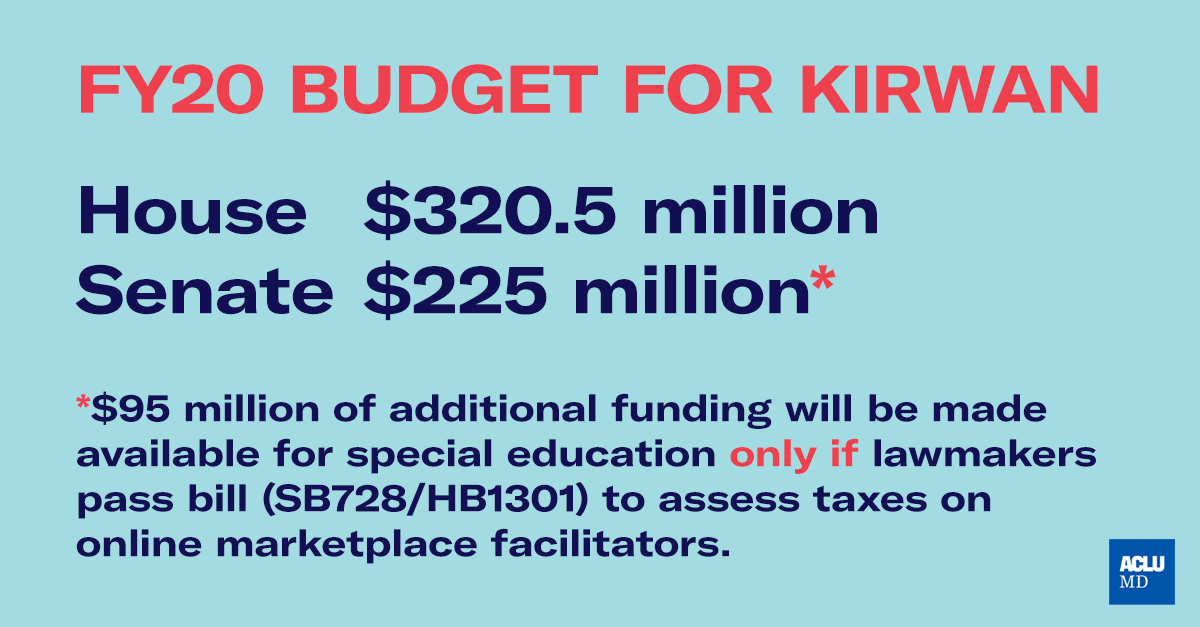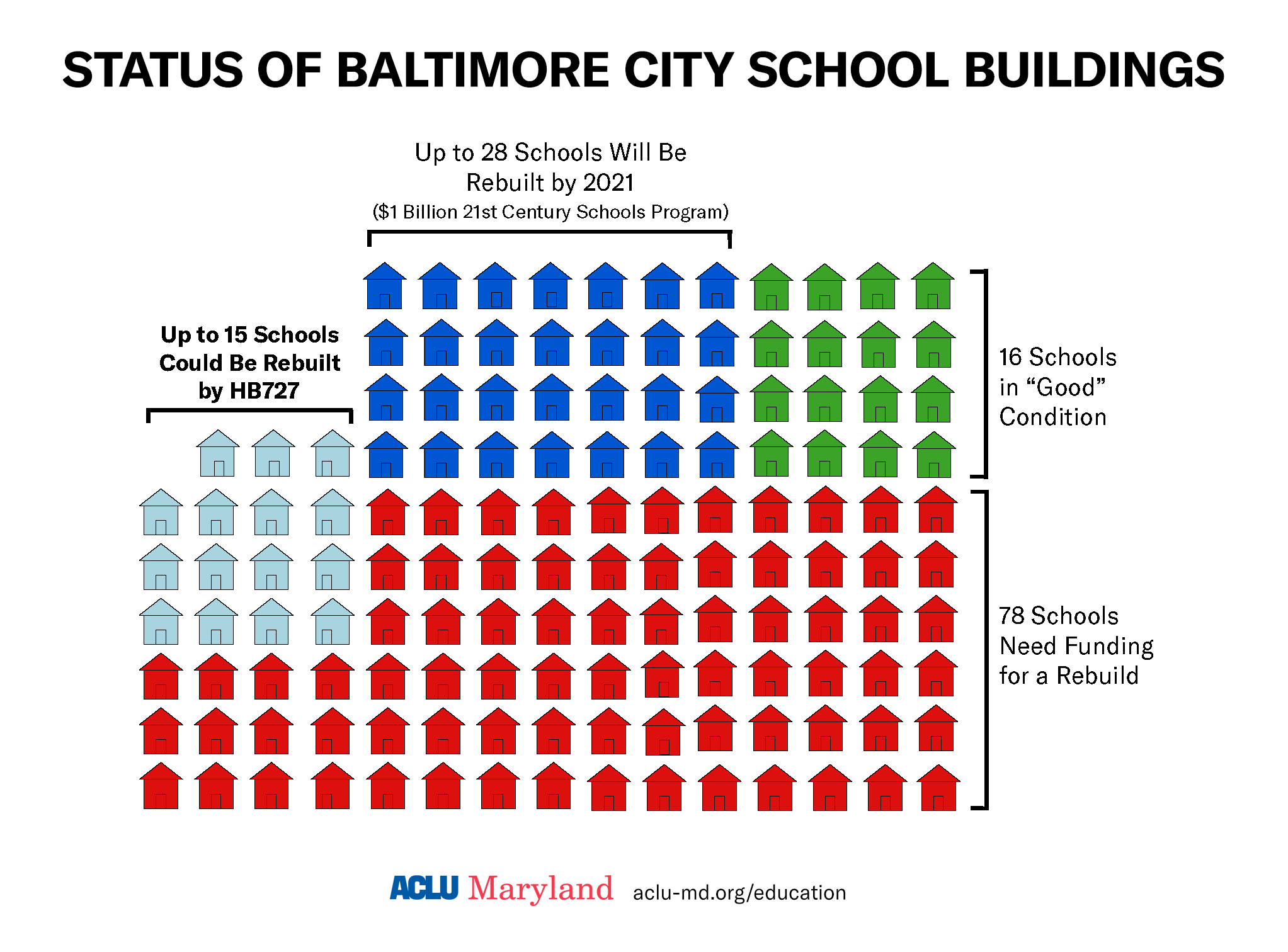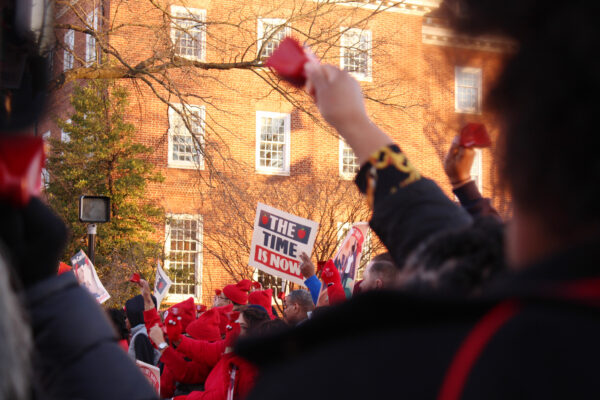KIRWAN & STATE EDUCATION BUDGET
The “Blueprint for Maryland’s Future” (HB1413/SB1030) bill is the first action on recommendations from the Kirwan Commission. The bill as introduced includes funding for expanding pre-kindergarten, increasing teacher salaries, and providing grants for concentrated poverty and special education. The ACLU testified in support of this bill, urging state legislators to develop a targeted and comprehensive formula which is the only way to seriously begin to combat decades of gross underfunding for students and families. As of now, the Kirwan “Blueprint” bill is pending the results of the State Budget process.

FUNDING FOR SCHOOL BUILDINGS



